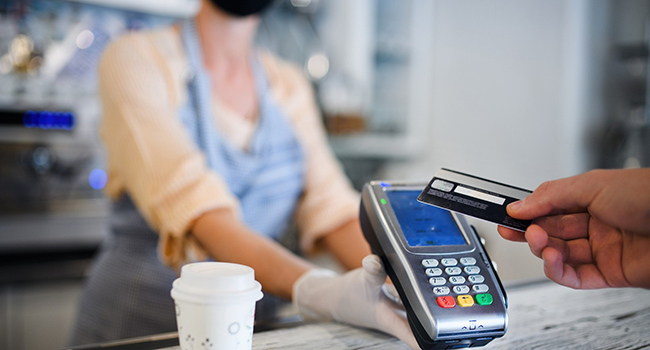Shoppers using credit or debit cards for every purchase instead of cash and coins will have to watch their spending habits, said Mike Maier, a financial expert with the Alberta School of Business at the University of Alberta.

“It’s a lot easier to spend money if it’s just a card in your wallet, than if you had cash. You can blow your budget by not realizing how much you actually spend on impulse buys,” he explained.
A simple cash transaction like a daily coffee can quickly add up if it goes on a card, Maier said.
“We tend to start ignoring price when dealing with debit versus cash.”
Credit cards, with their high interest rates, pose an even greater risk because “it’s not money you necessarily have.”
People who prefer using cash – or have little choice if they have credit problems and can’t open a bank account – can’t do much except patronize businesses that take it, Maier said. In some other countries like China, the use of phone apps to allow for cash transfers is common, but not in Canada.
“We do have Apple Pay and Google Pay here, but they aren’t used much and are still dependent on an underlying banking system.”
While society was moving to cashless transactions before the pandemic, COVID-19 offers more reasons for businesses to shy away from it, Maier noted.
“COVID-19 is a perceived risk and a liability. If an employee gets sick, there’s a possibility they could sue. And sickness puts a huge hole in a business operation or could lead to a temporary shutdown.”
Cash also poses other challenges, like risk of theft and handling costs to count and bank it, he added.

However, while cash and coins can be contaminated with COVID-19, they don’t pose a higher risk than touching a door handle, shopping cart or the buttons on a PIN pad, said U of A virologist David Evans, a professor in the Faculty of Medicine & Dentistry.
“If you have to use cash, that’s fine, just treat it like you would any other surface that’s potentially contaminated, and keep washing your hands like you’ve been doing.”
Canada’s plastic bills are actually a little less virus-friendly than their paper counterparts, Evans noted.
“They don’t absorb viruses as quickly as paper surfaces. Within three days to a week, any contamination on money will probably have died, and that’s assuming it was heavily contaminated to begin with.”
Anyone concerned about catching COVID-19 off their cash and coins can either put it away for a week or wash it in a sink of warm soapy water and lay it out to dry, Evans suggested.
“There won’t be any virus left after that.”
A society completely without cash, loonies and toonies isn’t likely, said Maier.
“There’s always going to be a role for cash, for small things like coffee and tips, and for some sectors that have anonymity factors that people value, like casinos.”
Businesses will also likely go back to accepting cash even as COVID-19 persists, he added.
“Businesses want to give customers as many ways as possible to pay, if it’s a choice between making a sale or not.”
If plastic is your preferred mode of payment, Maier offers these tips for spending wisely:
Set up a budget for smart spending.
“This ensures you meet fixed obligations such as car, rent and mortgage payments each month. Then portion out what’s left for savings and discretionary spending. This lets you figure out what you value. Is it travel, books, time spent with friends? By doing that, it helps your psychological well-being.”
Set up an automated savings account.
“Leaving it all in a chequing account makes it too easy to spend. You’re less likely to touch it if it’s in a separate account.”
Track purchases to avoid overspending.
“Apps like mint.com can track spending and send a warning when a buyer nears their spending limit.”
Check your monthly bank statements.
“Most of us don’t pay attention to (extra fees for debit transactions) but it does add up over the course of the month.”
Shop around for a banking package that suits your spending habits.
“If you’re a heavy user, you may want a high-powered package where options like unlimited numbers of withdrawals are included.”
Use credit cards – but carefully.
They offer rewards like cash back and travel points, afford greater consumer fraud protection than debit cards, and have no transaction fees, but be sure to pay off the balance in full at the end of each month to avoid piling up high interest rates on outstanding balances.
When using a debit card, use common sense.
Make sure there’s enough in the account to cover withdrawals and avoid penalties.
| By Bev Betkowski
This article was submitted by the University of Alberta’s online publication Folio, a Troy Media content provider partner.
The views, opinions and positions expressed by columnists and contributors are the author’s alone. They do not inherently or expressly reflect the views, opinions and/or positions of our publication.
